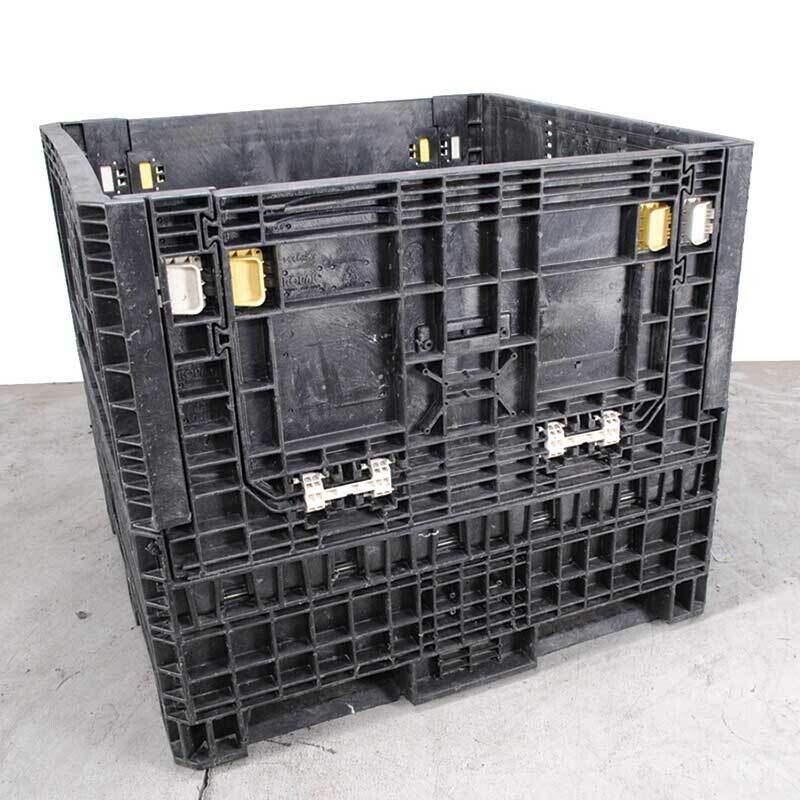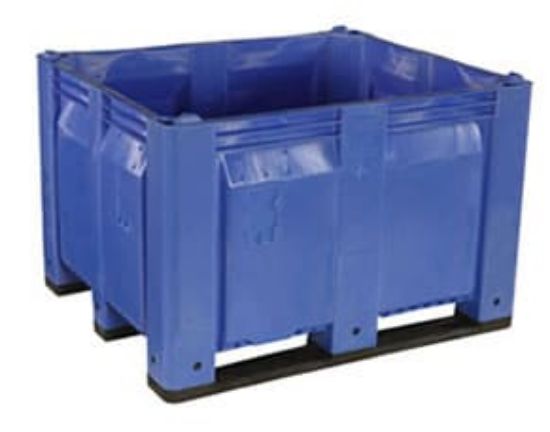The benefits of using used plastic containers for packaging and logistics
Just How Mass Containers Can Enhance Effectiveness in Your Packaging Operations
Mass containers play a vital function in enhancing packaging procedures. Their layout enables far better use vertical space and promotes arranged inventory monitoring. This effectiveness leads to decreased material replenishment frequency and lower labor prices. Additionally, the sturdiness of these containers reduces item damages. As services seek means to boost their processes, recognizing the multifaceted advantages of bulk containers becomes crucial. What various other benefits might they bring to the table?
Streamlined Storage Solutions
As business look for to maximize their operations, streamlined storage space services have actually come to be essential for improving packaging efficiency. Efficient storage not just conserves room yet also facilitates quicker accessibility to materials, which is vital in hectic production atmospheres. Mass containers, designed for easy stacking and company, considerably minimize the intricacy of storage systems. They enable businesses to optimize vertical room while minimizing the footprint needed for stock.
Furthermore, these containers usually include ergonomic layouts that simplify taking care of and transportation, reducing the threat of injury and improving workflow. By combining materials in bulk containers, business can reduce the regularity of restocking and simplify their supply chain processes. Generally, the application of efficient storage remedies fosters an extra orderly work area, bring about boosted efficiency and lowered functional expenses. Through thoughtful design and strategic use mass containers, services can attain significant enhancements in their packaging operations.

Waste Reduction and Sustainability
While the search of performance typically drives product packaging decisions, waste reduction and sustainability have become important factors to consider in modern-day procedures. Firms increasingly identify that taking on mass containers can significantly decrease product waste. These containers commonly make use of less packaging material than standard approaches, resulting in a smaller sized carbon footprint.
Bulk containers can be reused multiple times, which better lowers the demand for single-use packaging and lowers total waste getting in garbage dumps. Their style often permits simpler recycling processes, aligning with sustainability goals.
Furthermore, companies that focus on waste reduction can enhance their brand reputation, attracting ecologically mindful customers. By executing bulk containers, organizations not just streamline procedures but also contribute positively to environmental stewardship. This twin advantage of operational efficiency and sustainability placements firms favorably in an affordable market progressively concentrated on environment-friendly practices.
Enhanced Production Line Performance

Implementing mass containers on production line greatly improves efficiency by streamlining the handling and transport of materials. By using bulk containers, suppliers can decrease the frequency of material replenishment, permitting employees to concentrate on assembly tasks instead of constant supply administration. This causes less disruptions and a smoother workflow, inevitably boosting productivity.
In addition, mass containers are made for simple assimilation with automated systems, even more maximizing the setting up procedure. Their standard shapes and sizes help with far better company, allowing workers to find and access materials promptly. This reduction in search time adds to a much more fluid production environment.

Cost Financial Savings and Enhanced Revenue Margins
Notable price savings can be realized with the fostering of mass containers in packaging procedures. By reducing the requirement for several smaller sized plans, companies can decrease product prices significantly. Mass containers frequently need less product packaging material in general, resulting in lower expenses on supplies. Additionally, the efficiency of bulk handling lessens labor prices related to packaging and unpacking, further enhancing cost savings.
Less trips to distributors and reduced transportation expenses are likewise vital benefits, as bulk containers enable increased item ability per delivery. This greater quantity not just reduces shipping expenses yet additionally enhances storage room within centers, bring about improved supply management.
The sturdiness of mass containers usually equates to reduce damage prices throughout handling and transport, maintaining product integrity and minimizing waste. Collectively, these elements contribute to check my site improved earnings margins, making bulk containers an economically advantageous choice for organizations seeking performance in their product packaging procedures.
Versatility Across Industries
Mass containers supply remarkable adaptability across various sectors, making them a beneficial possession beyond just cost financial savings. In the food and beverage sector, these containers assist in the safe transport and storage of large amounts of active ingredients, enhancing performance in assembly line. In drugs, bulk containers ensure compliance with rigid hygiene requirements while suiting the bulk handling of resources. The chemical market also advantages, as these containers endure harsh materials and stop contamination, supporting risk-free procedures. used plastic containers. In addition, the farming industry uses mass containers for transferring fertilizers and grains, minimizing and maximizing logistics waste. Their adaptability reaches production, where bulk containers improve assembly procedures and reduce the demand for too much packaging. This cross-industry performance not just enhances operational performance but likewise promotes sustainability through decreased packaging waste, highlighting the essential function mass containers play in modern supply chains
Frequently Asked Concerns
Exactly How Do Mass Containers Influence Employee Security in Product Packaging Operations?
Mass containers greatly enhance worker safety in product packaging operations by reducing hand-operated handling, reducing injury risks, and advertising ergonomic methods. Their design facilitates much safer transportation and storage space, eventually developing a much more safe and secure job setting for all workers.
What Materials Are Bulk Containers Generally Made From?
Mass containers are normally made from resilient materials such as high-density polyethylene, polypropylene, steel, or wood - used bulk containers. These materials give strength, resistance to ecological factors, and suitability for different materials, guaranteeing effective and secure transportation of products
Can Mass Containers Be Customized for Details Products?
Yes, bulk containers can be personalized for specific products. Producers frequently tailor measurements, materials, and includes to fulfill distinct requirements, ensuring suitable protection and effectiveness during Home Page storage and transport of numerous items.
How Do Bulk Containers Affect Transportation Logistics?
Mass containers streamline transport logistics by making the most of cargo space, lowering the variety of journeys required, and minimizing managing expenses (used collapsible containers). Their standard dimensions assist in reliable filling and dumping, ultimately resulting in enhanced functional performance throughout the supply chain
What Is the Lifespan of Bulk Containers in Routine Use?
The lifespan of bulk containers in routine usage typically ranges from 5 to 10 years, depending upon material high quality, taking care of practices, and environmental conditions. Proper upkeep can greatly expand their use and performance.
Applying mass containers on assembly lines greatly improves performance by enhancing the handling and transport of products. Bulk containers frequently call for less packaging material in general, resulting in lower expenses on supplies. In pharmaceuticals, mass containers assure conformity with rigid health criteria while accommodating the mass handling of raw materials. Their flexibility extends to production, where bulk containers streamline setting up processes and lower the requirement for extreme product packaging. Bulk containers significantly boost worker safety and security in product packaging operations by lowering manual handling, minimizing injury threats, and advertising ergonomic methods.